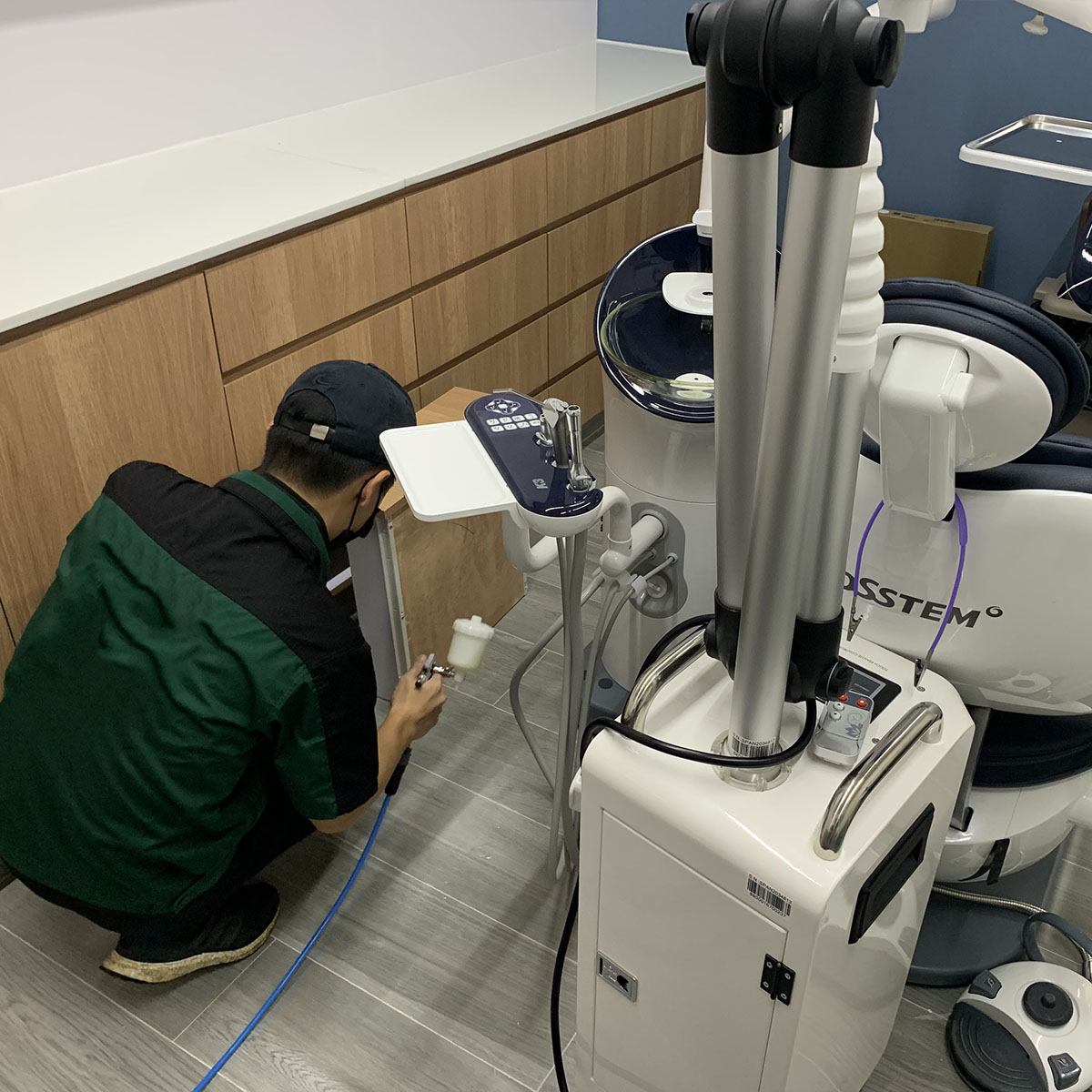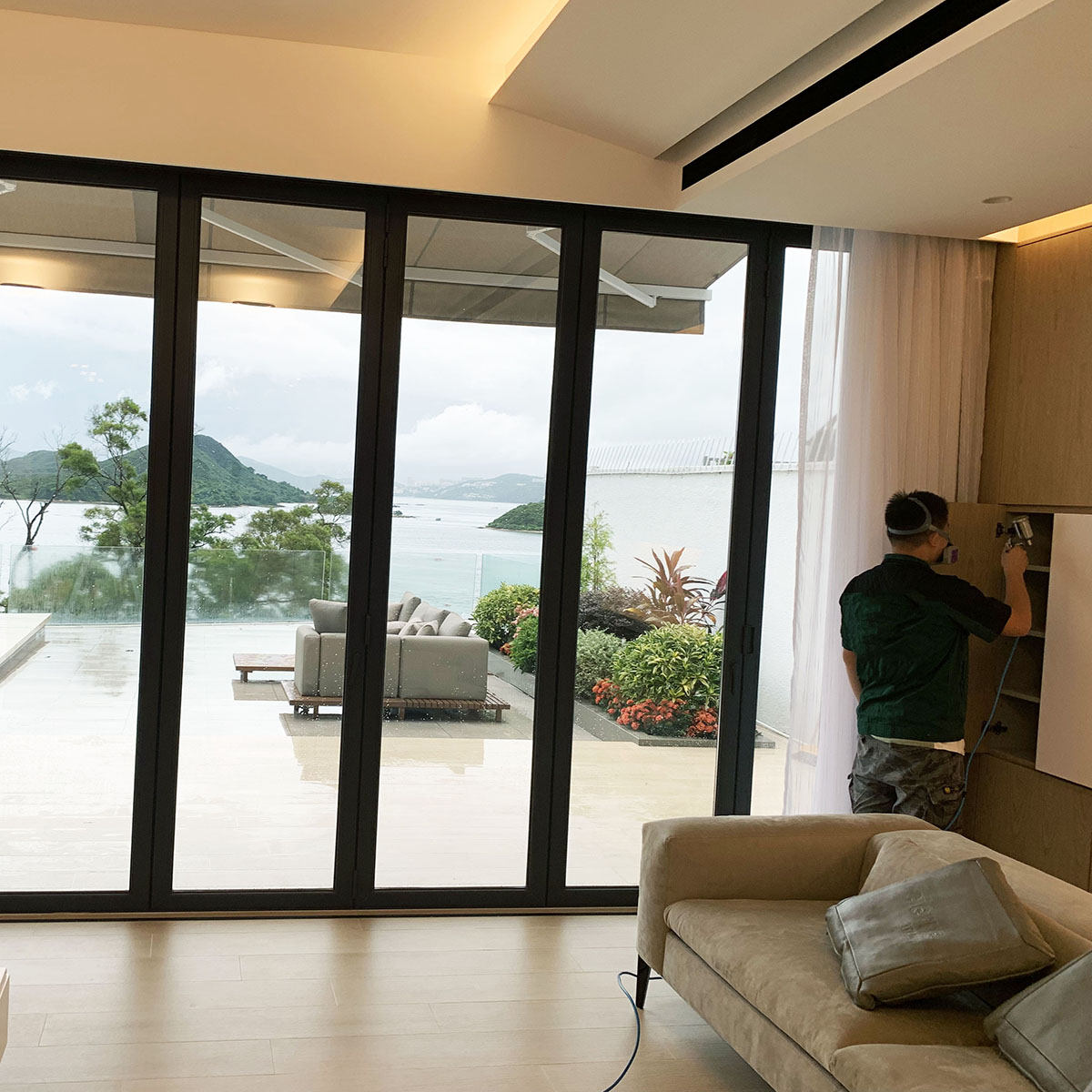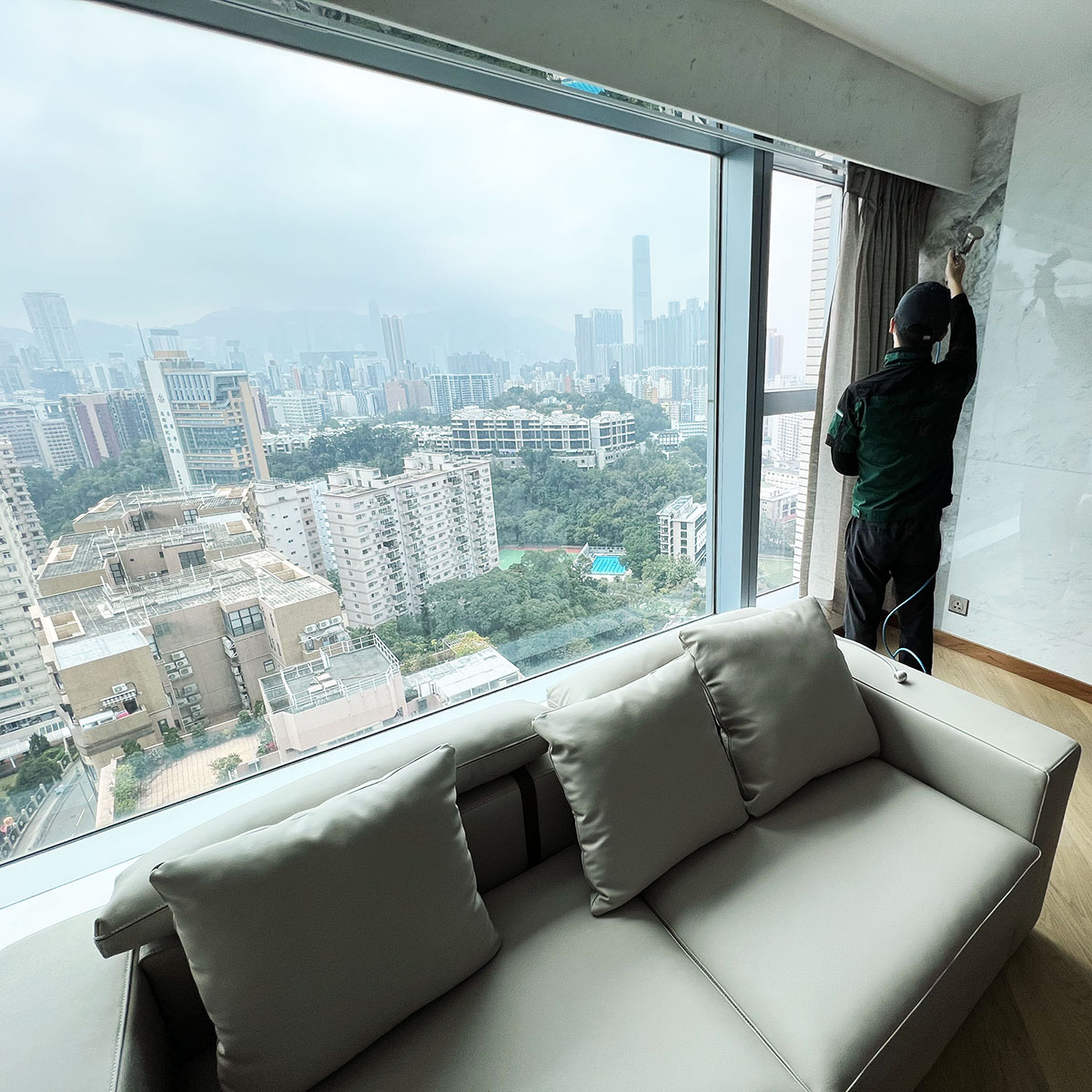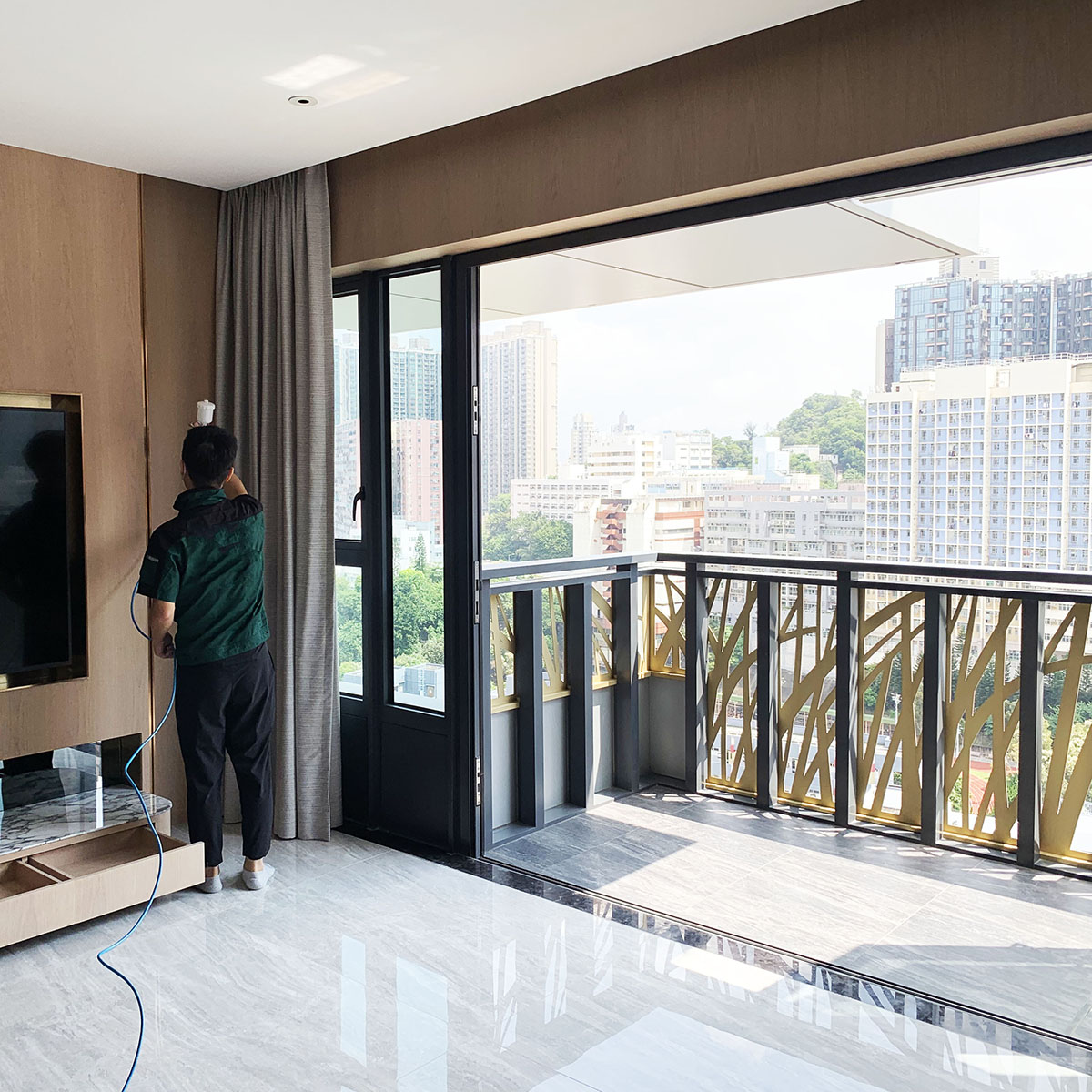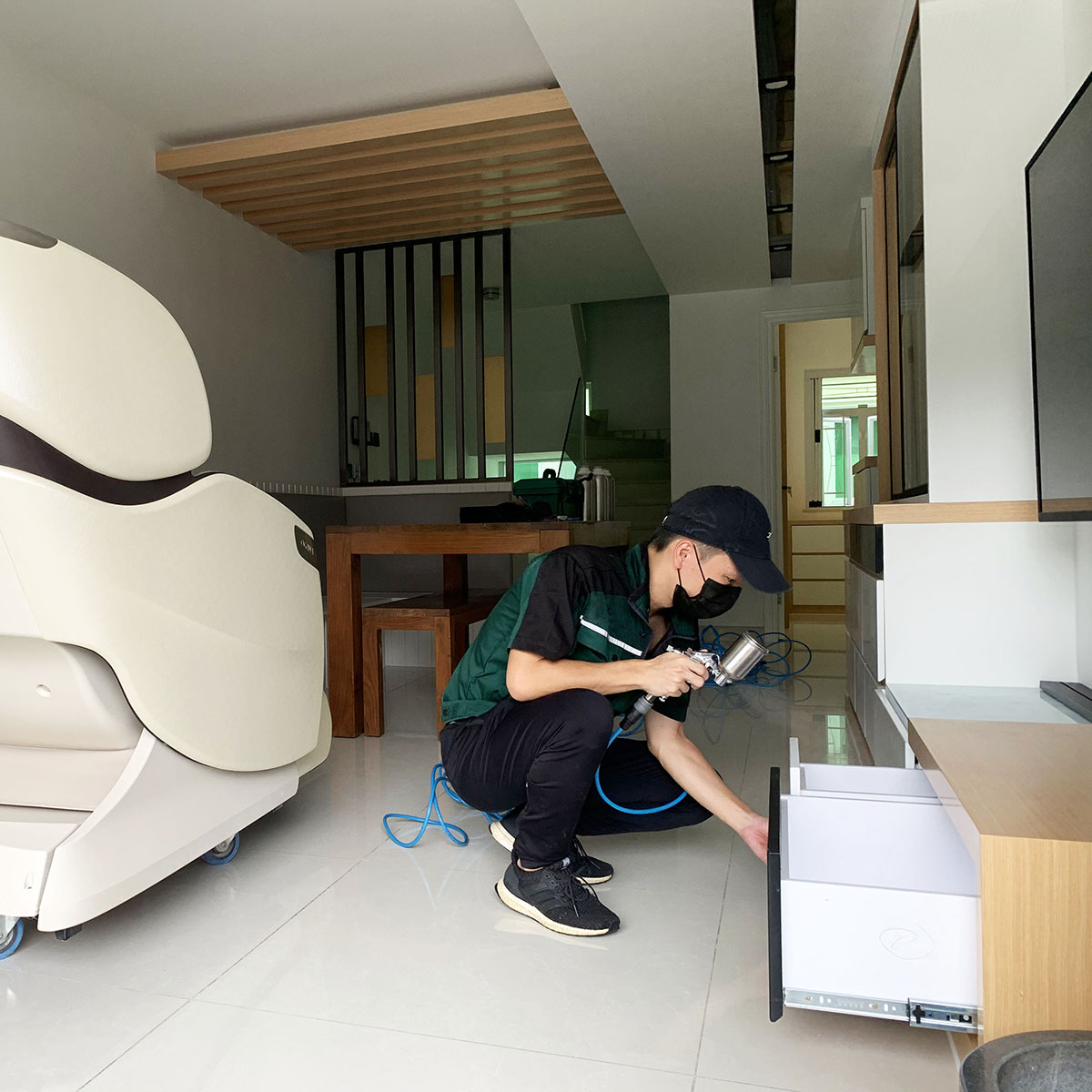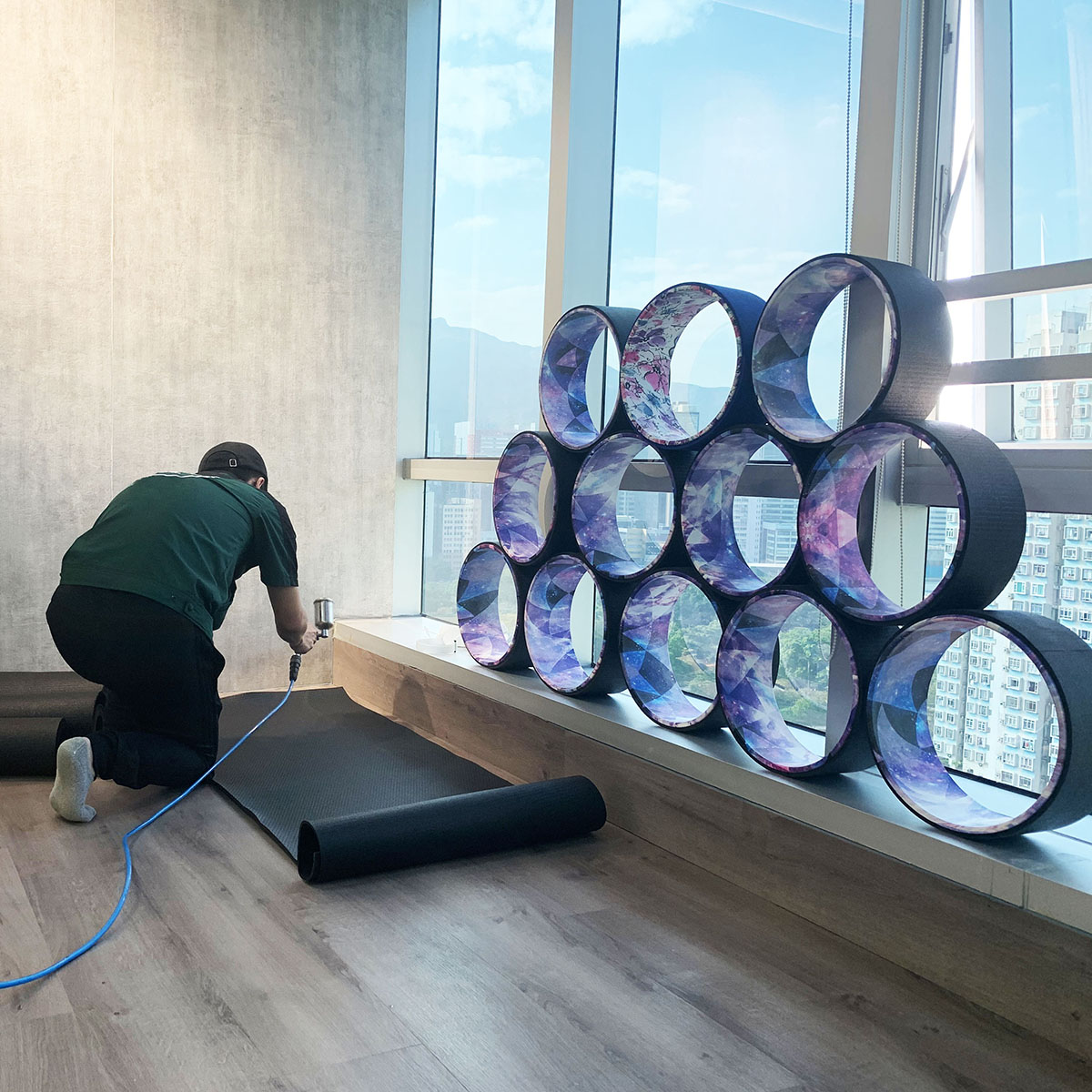The V1 Antibacterial Coating Service utilizes photocatalyst technology to create an antibacterial coating aimed at enhancing the antibacterial properties of object surfaces, reducing the spread and infection of viruses and bacteria. A photocatalyst is a substance that uses light energy to trigger chemical reactions, breaking down pollutants and harmful substances in the air into harmless compounds. Professional technicians evenly apply the photocatalyst coating onto the surfaces of objects requested by clients, such as furniture, building materials, glass, metal, etc. When ultraviolet or visible light hits the coated surface, the photocatalyst triggers a chemical reaction, releasing free radicals that kill viruses and bacteria, achieving an antibacterial effect.
Air Purification:
The core component of the photocatalyst is titanium dioxide (TiO2), which reacts with organic substances in the air to produce non-toxic inorganic compounds, efficiently breaking down formaldehyde, benzene, ammonia, and more into CO2 and H2O. TiO2 particles are non-toxic to microorganisms and cells and have been certified by the FDA for use as a food additive.
Odor Elimination:
Effectively removes cigarette smoke, household garbage odors, pet smells, and other unpleasant odors.
Sterilization:
Photocatalysis has a sterilizing effect on airborne novel coronaviruses, E. coli, Staphylococcus aureus, and more, with an efficacy rate of up to 99.99%.
Mold Prevention and Stain Resistance:
It purifies water pollution and organic harmful substances in water, with a super-hydrophilic surface that provides anti-fog, easy-to-clean, and quick-drying properties.
Public places or objects with prolonged exposure to bacteria, high-traffic areas, or locations where people stay for extended periods.
Lasts six months or more, resistant to 75% alcohol and 1:49 bleach solutions.
The application team has over five years of relevant professional experience.
